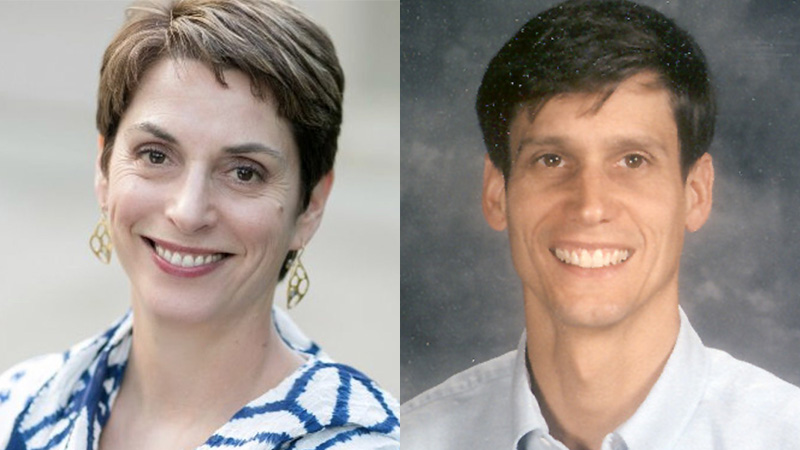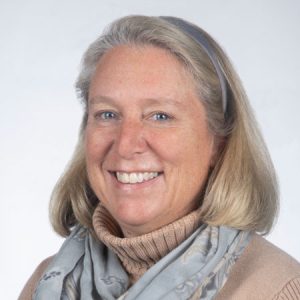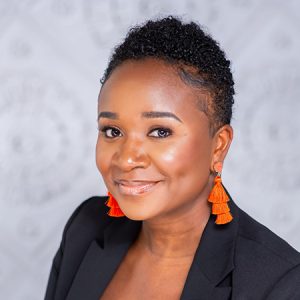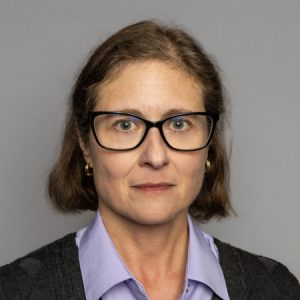June 30, 2025

Story by Cheri Ghan, ghanc@health.missouri.edu
Two of the driving forces behind Mizzou’s Department of Public Health are stepping away this year, leaving behind a department shaped by vision, innovation and service.
Lise Saffran, founding faculty member and longtime leader of the Master of Public Health program, is retiring after 19 years at MU. Tom Rose, a local veterinarian turned educator, is also concluding his tenure as an adjunct instructor to focus on his private practice.
When College of Health Sciences Dean Kristofer Hagglund was developing the MPH degree in 2007, Saffran was the first person he added to his team. She would go on to lead the program to department status and encourage a broad range of focus areas. She helped grow the fledgling MPH degree into a multidisciplinary hub for community engagement, policy innovation and workforce preparation.
Saffran’s influence extended beyond the classroom. She assembled faculty and curriculum, helped guide the program through its first accreditation and, in addition to teaching MPH classes, created and taught courses in the early days of the Bachelor of Public Health degree. Named MPH director in 2013 and later serving as interim chair when the Department of Public Health launched in 2019, Saffran framed the program as more than a degree: It was a call to service, justice and community.
“My goals for the program were that it be rigorous and based in practice — really useful to the students and to the agencies they ultimately worked for,” Saffran said. “I wanted this to be a community […] that produced people with the skills they needed to make a difference.”
Saffran saw the MPH program, which initially was housed in the University of Missouri Graduate School, as a way to improve and change lives. She came to the role with a background in women’s health and nonprofit work and a fire for activism.
Lynnelle Phillips, now an assistant teaching professor in the Department of Public Health, was one of the initial faculty hires recruited by both Hagglund and Saffran. Phillips admired Saffran’s creativity and energy.
“The most defining characteristic, I think, was her extroverted nature that we needed at the time to coordinate an area program that involved recruiting faculty from all over campus,” Phillips said. “Lise grew this program through her creativity, outgoing personality and sheer will. She never looked back, always shooting for the next challenge. She embraced every challenge and pushed us to be the best program we could be.”
One of the program’s enduring academic partnerships has been with the MU College of Veterinary Medicine, which was part of Hagglund’s and former Vet School professor Jeff Tyler’s original degree plan. In addition to in-seat students, the veterinary medicine emphasis became the first fully online program of its kind in the country in 2018.
“It was important for us to stand out, and our partnership with the vet school allowed us to do that in a way that was extremely relevant and forward-thinking,” Saffran said. “Most emerging infectious diseases are zoonotic, for example.”
Numerous students benefited from that partnership, including Rose. The practicing veterinarian earned his MPH in 2017 and soon began teaching in the program. A longtime community volunteer and former Columbia Board of Education member, Rose said he was drawn to public health as a “natural calling.”
In addition to teaching a veterinary public health course and capstone class, Rose managed internships for students in the dual DVM/MPH program. Despite the online format, he prioritized building connections with and among students.
“I will certainly miss interaction with the students, even though it was limited due to the online format,” Rose said. “I tried to create opportunities for engagement and interaction in my courses that allowed my students to learn from me and from their fellow students and to actually ‘see’ each other.”
Over the years, a number of practicing veterinarians also enrolled in the program. Rose said that dynamic was particularly satisfying as it brought real-world insights into the classroom.
“They certainly have added different perspectives to the course discussions, depending upon their own past experiences,” he said. “Students have been able to learn from other students.”
Similarly to Rose’s path, Sonita Simelus earned her MPH from Mizzou and went on to become an assistant teaching professor with the Department of Public Health. Saffran served as Simelus’ academic adviser, helping her navigate academic goals, professional growth and future pathways “with a deep sense of care and intentionality.”
“Her guidance shaped my experience and development more profoundly than any single course could,” Simelus said. “Her legacy at Mizzou is vast and enduring. It lives on in every MPH graduate who was shaped by her mentorship and in the public health work being done across Missouri and beyond by those she influenced — including myself.”
Jessica Hosey, an assistant teaching professor in the Department of Health Sciences, served as MPH project coordinator from 2012 to 2024. She said both Saffran and Rose were critical to the program’s success.
“Lise brought a creativity to the department that allowed us to continue to build the size of the MPH,” Hosey said. “She was also a fierce advocate for public health on campus. Tom was able to engage students in the DVM/MPH in internships and relevant coursework tied to their specific future in public health, considerations rarely included in standard MPH programs.”
Saffran has moved to California and now teaches in the School of Public Health at the University of California, Berkeley. Looking ahead, she said the field of public health will need to embrace new approaches, not just new data, to succeed in an increasingly complex environment.
“Drawing on scientific evidence is necessary but not sufficient,” she said. “There is tremendous wisdom in the arts and humanities (and in social sciences like social psychology) that are necessary for us to understand issues around trust, meaning making, motivated reasoning and values. My goals were always to recruit the most talented and diverse class, to remain close to the ground in Missouri and to make sure we were equipping students for the jobs they held after.”


